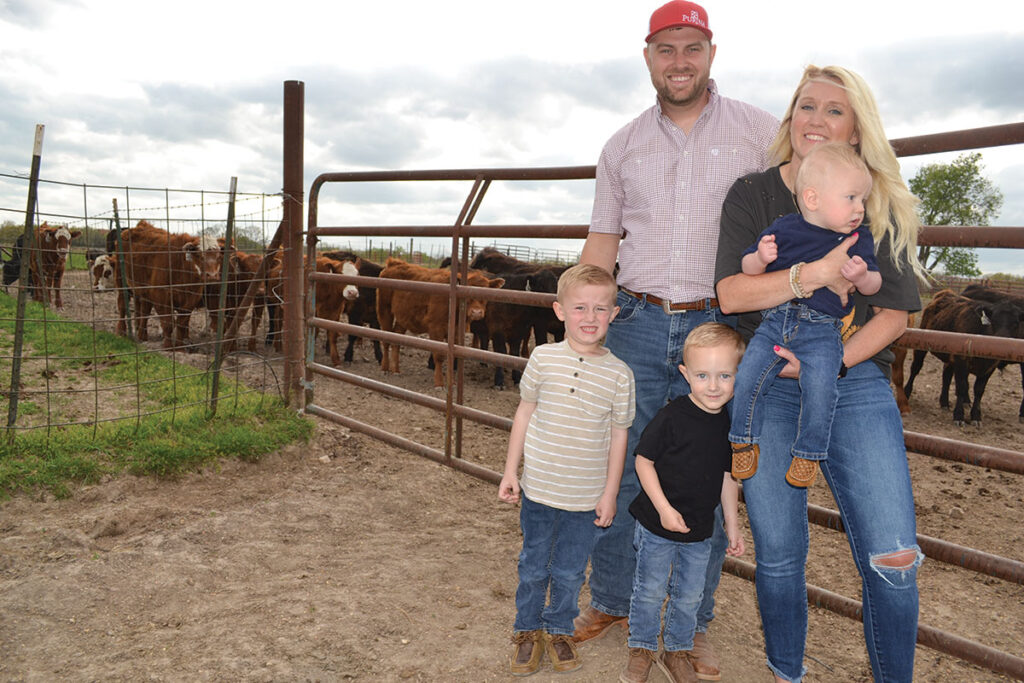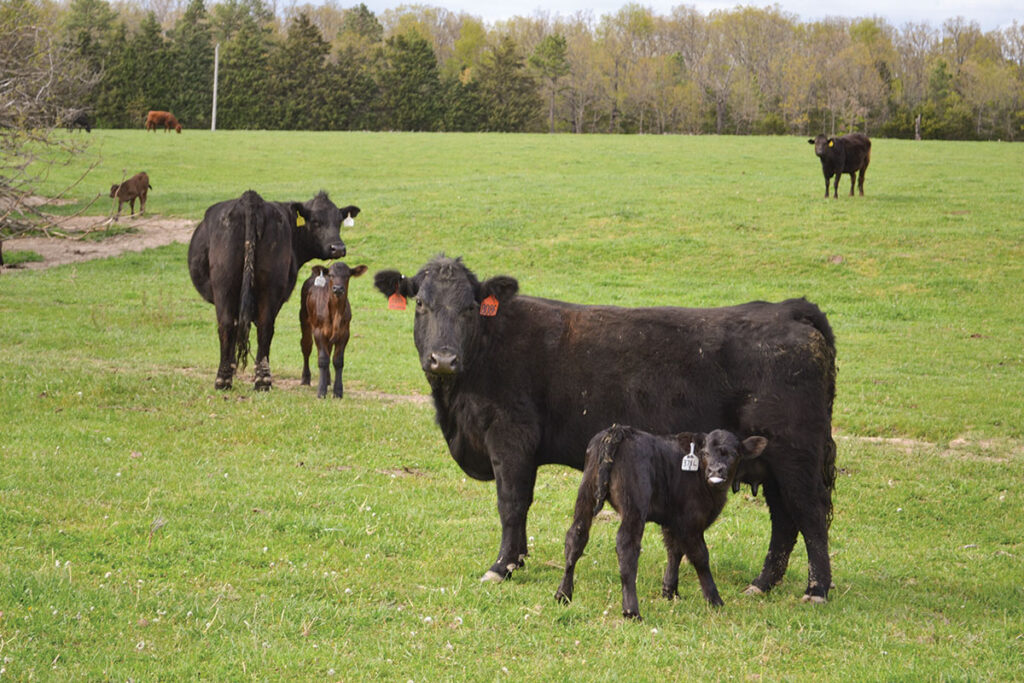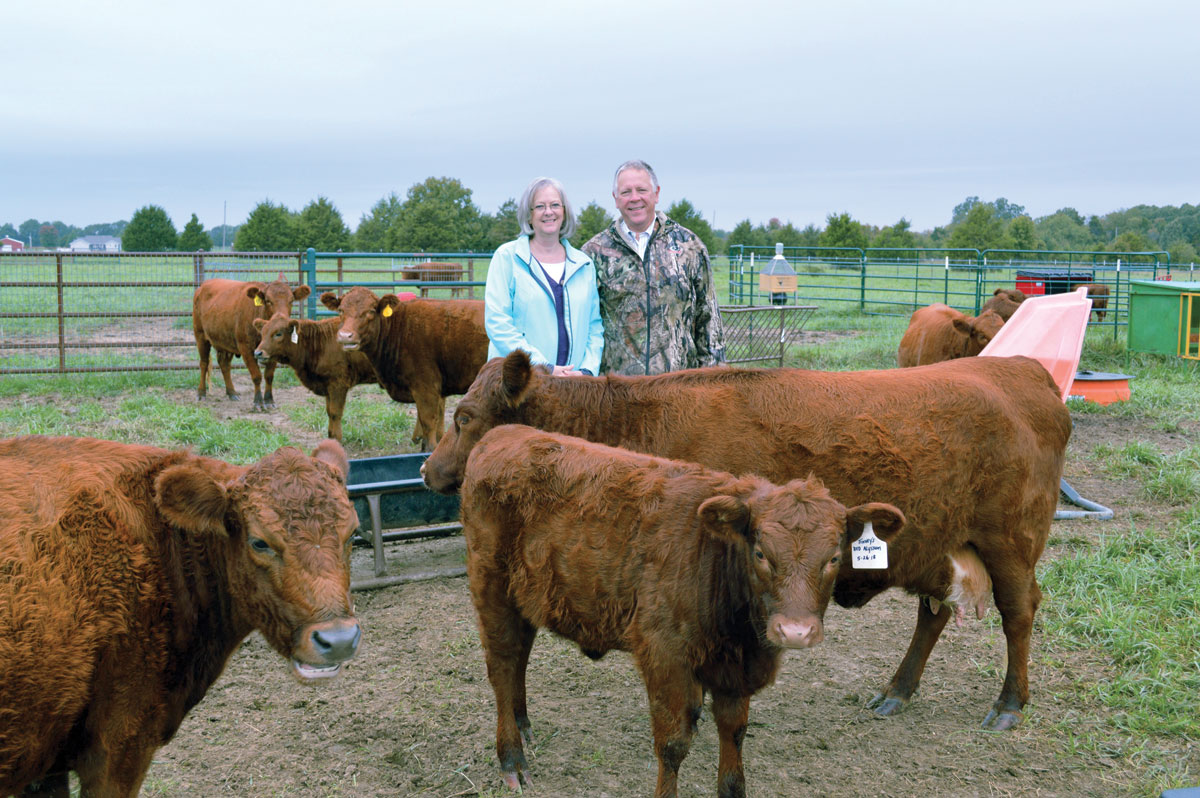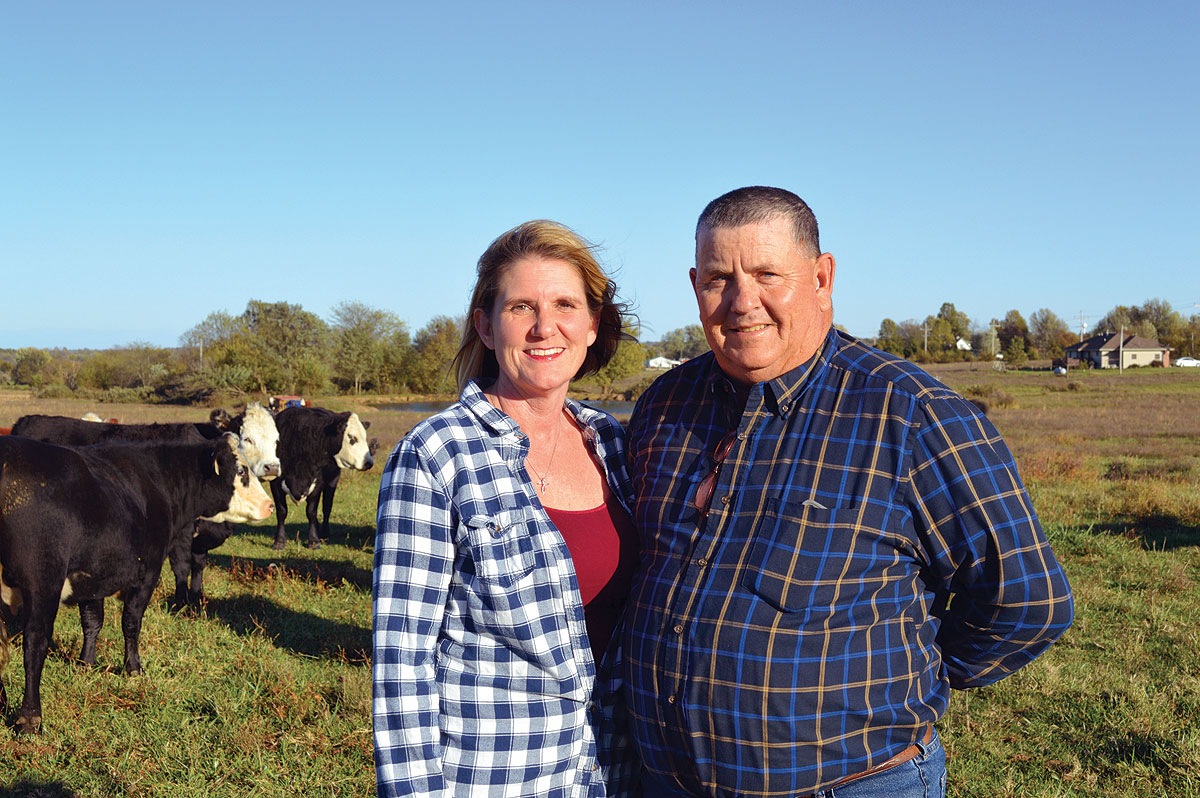
Josh Glendenning’s agriculture connection doesn’t stop at his family farm
LEBANON, MO. – Laclede County, Mo., native Josh Glendenning is a busy man.
In addition to working as a feed rep at a local company, he raises registered Limousin cattle on his family farm in partnership with his father, and is in the early stages of his own AI and embryo transfer business.
Josh grew up on his family’s 300-acre farm as did his dad, Jack D. Glendenning, and graduated from the University of Missouri-Columbia with a degree in animal science.
He and Jack D., raise 250 registered Limousin and Lim-Flex cattle on their farm, as did his grandfather, Jack. Cattle run over 1,000 acres of owned and rented land in Laclede and Dallas counties.
“We raise breeding heifers and bulls, and market feeder calves. We’re also working on growing a freezer beef business.”
The Glendennings sell bulls and heifers by private treaty and consign cattle and genetics to state and regional sales, including Missouri Limousin Breeders Association sales. Josh is currently the secretary of the state association and president of the Heart of Missouri Limousin Breeders Association.
“Our feeder cattle will go into our personal feedlot to be sold as freezer beef and be marketed through the sale barn,” Josh explained. “They sell there on the Purina Plus wean/vac program, a feed and vaccination program that we can use to promote our calves as value added.
“We also supply all of the hamburger used at the Gravel Bar & Grill at Sand Spring Resort, our family’s restaurant at Bennett Spring.”
Josh started working in AI in college.
“When I was at Mizzou, I got to be part of an internship my junior year that had us traveling all around the country with Select Sires,” he said. “After graduation, I started AIing cows for neighboring farms. Last year, I did 1,000 head of cattle for different producers in Laclede, Wright and Pulaski counties.”
Meanwhile, Josh attended embryo transfer school last fall and has also started doing the procedure for local producers.

“I’ve always had a passion for cattle, and I love the genetics, like matching up pedigrees to breed the best animal possible,” he added. “We use EPDs strictly as a tool to help select bulls. We use them to narrow down between a couple of bulls, but when we select bulls from our herd, we look more at pedigrees, phenotype – the physical make-up of the animal – disposition, growth and the performance of the individual as opposed to using a bull strictly because he has EPDs in the top 1 percent for whatever trait.”
Josh is also able to do some crossover between his various professional pursuits.
“In raising our own cattle on a feed program, I can talk to and show producers how a particular feed program is going to work, put on weight at a certain rate, etc. I can show them on paper, but I even take them to our farm and show them exactly what I’m talking about. I work in this but also use it myself,” he said.
“I never saw myself in sales, but I am technically a salesperson. I serve more as a consultant to all the farms I work with. Much of my time is spent traveling around the area, working with producers and making feed recommendations to help them improve their herds, flocks, etc. I will get a call from a horse customer that has several horses in bad condition. Part of what I do is make a recommendation to help improve the condition of the horses. We can do a feed trial with them to track how much those horses change over a 60-day span. I also track performance data points with cattle producers. We can put a set of calves a producer weans on a feed trial for three weeks and will track how much those calves gain over that period.”
Josh and his wife, Kayla (Peters), an ER nurse at Mercy, and their three sons, Easton (5), Hudson (3) and Bode (1), live on their family farm.
“Oh, those boys are all about the farm,” Josh added. “They are right in the middle of feeding, all of it. Easton showed a pig at the county fair this past year, and I bought two show pigs recently, getting ready for next year. The boys just love ‘em.”
Like so many growing up in a rural community, Josh was sure he wanted to move elsewhere after college but found his way back home.
“I went to Iowa right after college graduation and worked for a major meat producer. I hated it,” he said. “I came home after three months.”







